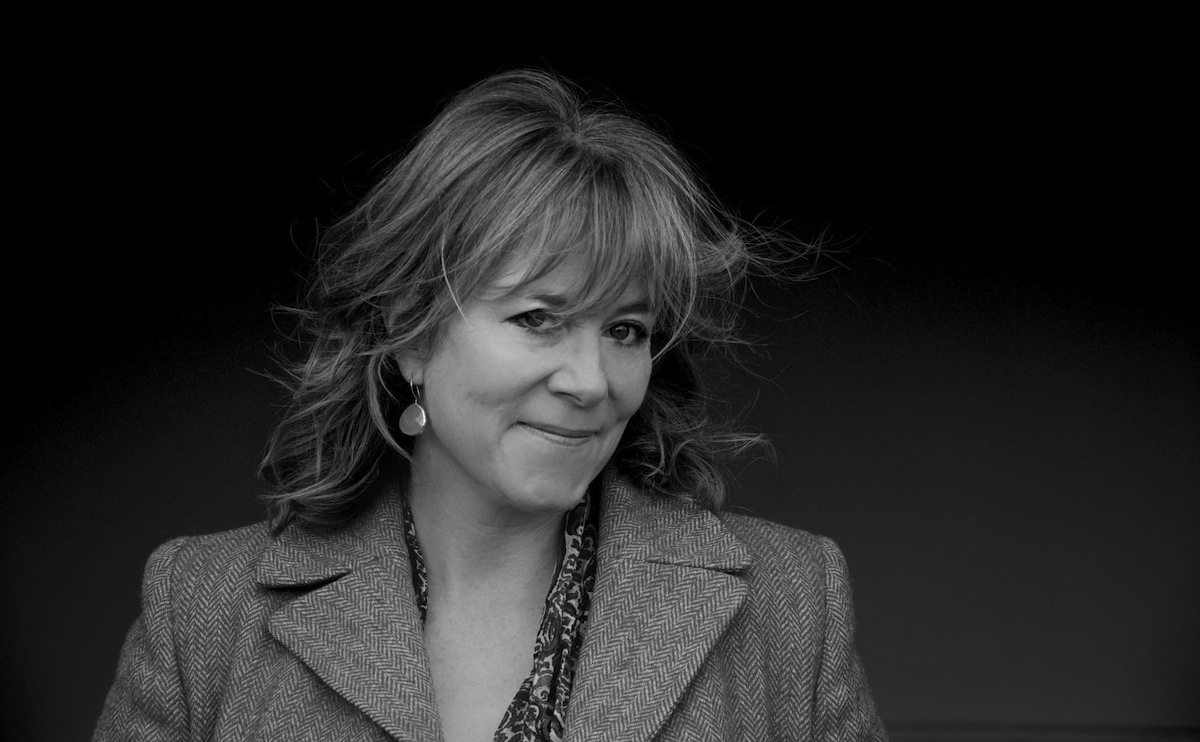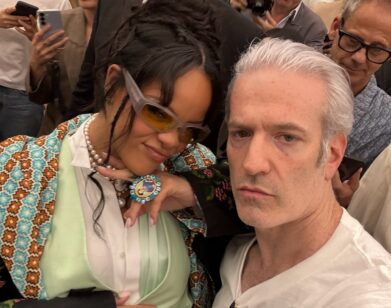Nica Rothschild’s Jazz-Age Awakening

ABOVE: HANNAH ROTHSCHILD. IMAGE COURTESY OF NELL BROOKFIELD
Smoky, seductive, smart, and full of both beautiful and sad family lore, Hannah Rothschild’s The Baroness: The Search for Nica, the Rebellious Rothschild (Knopf) is a sweeping biography. Nica Rothschild grew up with position and power, but her life within the perimeter of her family’s estate was suffocating and strange. Desperately lonely, with a distant mother and an alternately loving and suicidal father, Nica developed a rich imagination and daring. As a 30-year-old mother of five, Nica suddenly dropped her married life in South Africa to move to New York and become lifelong companions with Thelonious Monk. After throwing off her troubled family history, Rothschild thrived among the raw, creative talent in the dreamy, derelict downtown of Manhattan. And though she appears in Monk’s music, inspiring him, she is pretty much cut off from her famous family.
Rothschild’s grand-niece, Hannah, now rediscovers her life in tender, tumultuous, tragic, iconic tones. We spoke with Hannah Rothschild in London about family inheritance, insanity, jazz, butterflies, and childish charm.
ROYAL YOUNG: Let’s talk about how we’re trapped by our families.
HANNAH ROTHSCHILD: To an extent, my whole book is about being trapped by a family. If I look back on the history of that family, every generation has been trapped by expectation and fear and hope. What I mean by that is once they managed to get out of the ghetto, there was then this unbelievable pressure to make sure they stayed out. I think that put a very heavy burden on the heirs. Then, when they were secure and had made a lot of money and gotten a lot of possessions and had figured out how to enter society, Nica’s generation was the first that felt it could escape. The irony was they weren’t quite sure where to escape to. Neither Nica nor her two sisters were educated. They didn’t think it was worth educating women.
YOUNG: It seems to me they traded one trap for another. You have the ghetto holding you back, keeping you down. And though it may seem like freedom to accumulate wealth and title, those things themselves can be very suffocating.
ROTHSCHILD: I think that’s absolutely right. Nica lived in a jewel-encrusted cage. They lived a spectacularly luxurious life. But there was a maid who slept in their room; there was a footman who stood behind their chair; they ate eggs on Monday, fish on Tuesday, eggs on Wednesday, fish on Thursday. It was really like living in a prison. They weren’t allowed to go beyond the estate boundary. They were only allowed to play with other Rothschild children. It was extremely restrictive under the heirs.
YOUNG: The luxury and privilege almost lose their meaning when they are forced upon you.
ROTHSCHILD: They also had nothing to compare it against. Today, pretty much if you live anywhere in the world in any society, you have some idea about how other people live. You’re aware that people live differently. For these four young children born at the turn of the century, they had absolutely no idea that how they lived wasn’t normal. How difficult if you try and break out of that and realize that the world is so different. I often think about Nica arriving in New York, meeting her new friends in the jazz world and how differently they lived. It was extraordinary.
YOUNG: Yeah, it must have been a shock alive. Do you think that’s why her break from the family was so violent? Did it have to be, to throw off this old version of herself?
ROTHSCHILD: That’s absolutely part of it. The thing she really missed when she was growing up was friendship. She often ate completely alone in her nursery. What happened when she got to New York is there were no boundaries. People ate together, drove together, drank together.
YOUNG: That closeness must have been intoxicating.
ROTHSCHILD: Absolutely.
YOUNG: I want to talk about self-mythology. Nica made up a lot of mythology surrounding her life. She always used to say she had been named after a butterfly, but you actually found out she had been named after a moth. [laughs]
ROTHSCHILD: [laughs] She really hung on to that. People wrote songs about the butterflies. The other thing I find interesting was even though she lived downtown in a fairly modest house, she still had writing paper with The Baroness de Koenigswarter with a baronet-type crown on the top. She told people about who she was and where she came from. She knew what her history was worth.
YOUNG: That was one of her creative outlets. Why not make your life into art?
ROTHSCHILD: Absolutely. She also really, really believed in Thelonious Monk. She thought he was up there with the greatest figures of his century.
YOUNG: I’m so obsessed with this quote you have in your book about how it’s not trauma in childhood that ultimately effects us, but not being able to express that trauma.
ROTHSCHILD: It seemed to absolutely encapsulate what I felt had happened. Here were four children leaving with the absence or presence of their father who was really, really mentally disturbed. There was no one to talk about that with. When he committed suicide, there was no one to help process that. And when you don’t talk about it, it grows into this monstrous thing.
YOUNG: I know how much revelation, confession, and being real about hard moments can really help. I can’t imagine being forced into silence.
ROTHSCHILD: Yes, and suicide leaves you with just such terrible shame. Because you couldn’t save them, for them, for not being able to ever talk about it, for the fear that it was genetic.
YOUNG: What was especially terrifying was that in his moments of clarity, he seemed like such a charismatic and exciting figure who engaged with his children in really creative, loving ways.
ROTHSCHILD: They adored him.
YOUNG: Do you think we ever really manage to escape?
ROTHSCHILD: No. I think Nica did physically. One of the things that was very attractive to me as a young person growing up is that it seemed like she had. But then you get older and as I started to scratch the surface, mentally I don’t think she ever escaped.
YOUNG: The only way out is in. The only was to be free of it is to acknowledge that you’ll never be fully free of it.
ROTHSCHILD: That’s brilliant. Had she had therapy, Nica may well have come to that. She certainly tried to escape. She did change more things than most people. Rebellion is the reserve of the very young. She was a woman in her late 30s, with five children and she really did suddenly trip the light fantastic.
YOUNG: She didn’t have a childhood. So she was still a kid even in her late 30s. She was emotionally young.
ROTHSCHILD: Yup, and she never really grew up. She stayed very childlike. That was of course, part of their incredible charm. It was so seductive.
THE BARONESS: THE SEARCH FOR NICA, THE REBELLIOUS ROTHSCHILD IS OUT NOW.






